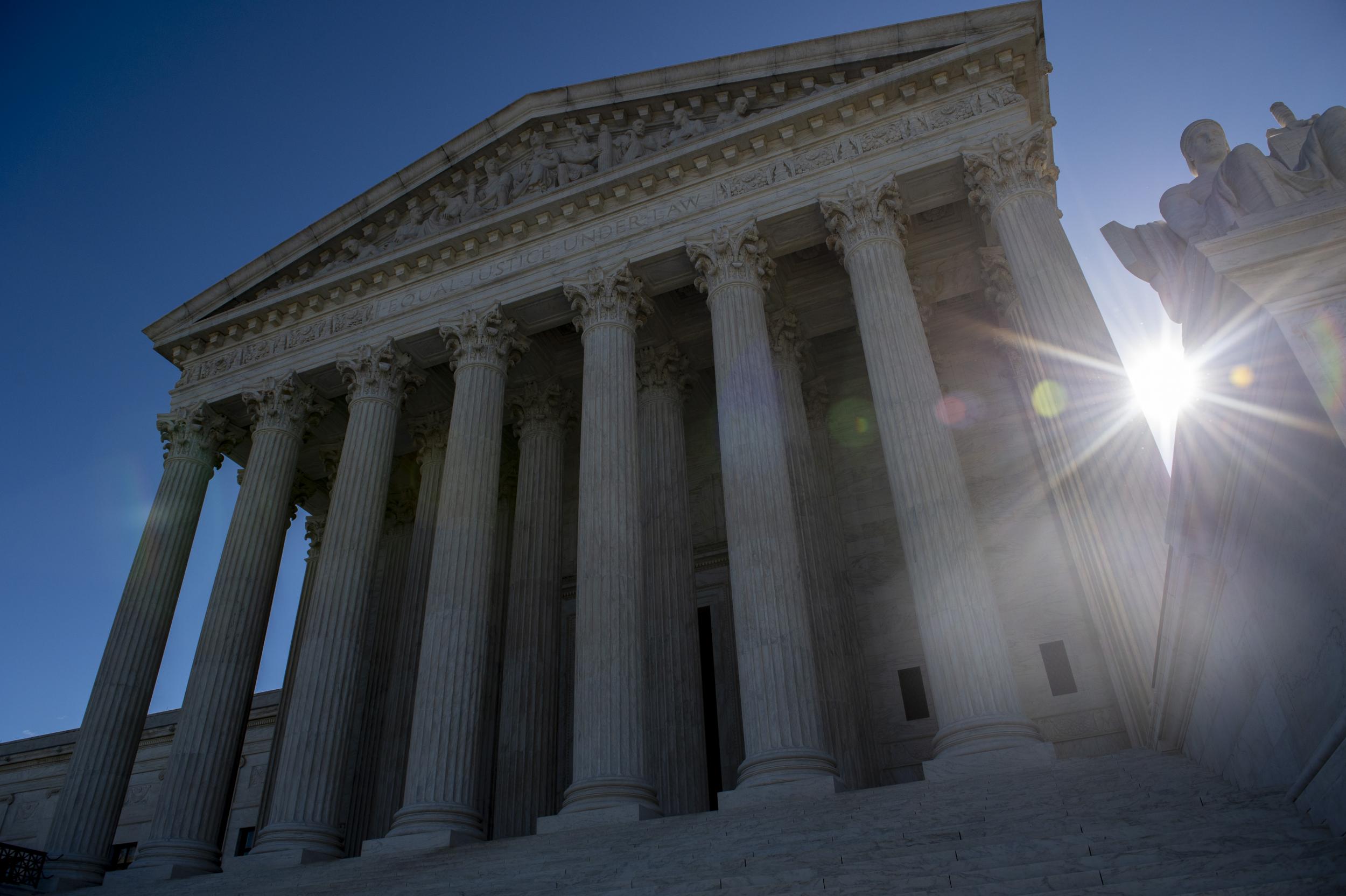US Supreme Court rules religious monument can remain on public land
Ruth Bader Ginsburg issued a fiery dissent from the bench

The US Supreme Court has ruled that a monument in the form of a large cross can remain on public land, saying that the monument does not constitute government endorsement of religion.
In a 7-2 majority, the court ruled that the 40-foot-tall "peace cross" World War I memorial, built in 1925 on public land in Maryland, did not violate the First Amendment’s ban on government establishment of religion.
The decision, known as American Legion v American Humanist Association, leaves unanswered questions about the boundaries of the separation of church and state, established by the US Constitution and considered a foundational element of American life.
In remarks speaking for five justices, justice Samuel Alito wrote that the monument was legal in part due to its secular association, the result of the period in which it was built.
“That the cross originated as a Christian symbol and retains that meaning in many contexts, does not change the fact that the symbol took on an added secular meaning when used in World War I memorials," he said.
He noted also that originally religious monuments can take on different meaning over time, citing the Notre Dame in Paris, France, which recently suffered fire damage, as an example of such a process.
He also said it would present a potentially harmful scenario to tear down a religious monument.
Justices Ruth Bader Ginsburg and Sonia Sotomayor opposed to the majority’s decision, with justice Ginsburg issuing her dissent from the bench.
“Decades ago, this court recognised that the Establishment Clause of the First Amendment to the Constitution demands governmental neutrality among religious faiths, and between religion and nonreligion,” she wrote. “Today the court erodes that neutrality commitment, diminishing precedent designed to preserve individual liberty and civic harmony in favour of a ‘presumption of constitutionality for longstanding monuments, symbols and practices'.”
Two of the court’s liberals, justice Stephen Breyer and justice Elena Kagan, joined the majority, with different approaches for their decision.
Justice Kagan cited the 1971 case Lemon v Kurtzman, which established what’s known as the “Lemon test”. That test requires courts to consider whether the challenged government practice has a secular purpose, whether its primary effect is to advance or inhibit religion, and whether it fosters excessive government entanglement with religion.
“I think that test’s focus on purposes and effects is crucial in evaluating government action in this sphere — as this very suit shows,” Justice Kagan wrote.
Trump-appointed justices Brett Kavanaugh and Neil Gorsuch both said in their concurring opinions on the ruling that they disapprove of the Lemon test.

Join our commenting forum
Join thought-provoking conversations, follow other Independent readers and see their replies
Comments
Bookmark popover
Removed from bookmarks